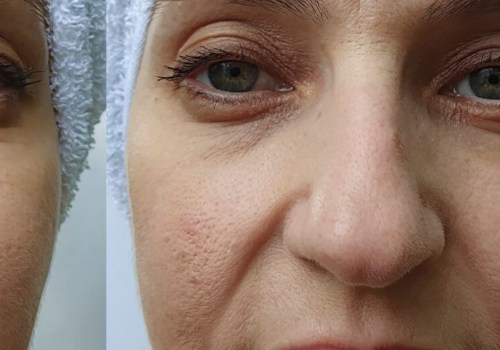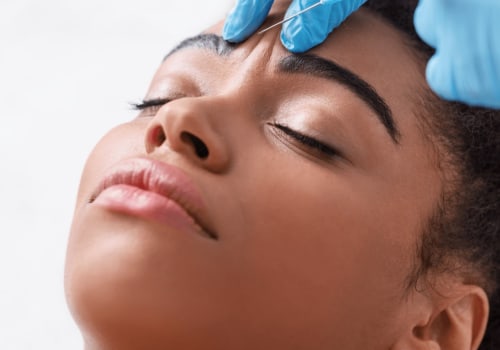Who Should Not Receive Botox Injections: A Guide for Patients
Byline: Aesthetic Treatment Insights Team
Short Answer: Certain Health Conditions and Contraindications Make Botox Unsafe
While Botox is safe for most patients, it’s not suitable for everyone. Individuals with certain health conditions, allergies, or who are taking specific medications should avoid Botox injections. Always consult with a healthcare provider to determine if Botox is right for you based on your medical history.
Who Should Avoid Botox Injections?
The following individuals should not receive Botox injections due to potential health risks or reduced effectiveness:
- Pregnant or Breastfeeding Women: The safety of Botox during pregnancy or breastfeeding has not been established, so it’s recommended to avoid treatment.
- Individuals with Neuromuscular Disorders: Conditions like ALS (Lou Gehrig’s disease), myasthenia gravis, or Lambert-Eaton syndrome can increase the risk of serious side effects.
- Those with Allergies to Botox Ingredients: People allergic to any of the components in Botox (botulinum toxin, human albumin, or sodium chloride) should not undergo treatment.
- Patients with a History of Botox Allergic Reactions: Those who have previously experienced adverse reactions to Botox or other botulinum toxin products should avoid further treatments.
- People Taking Certain Medications: Some medications, such as blood thinners, muscle relaxants, and certain antibiotics, can interact with Botox and increase the risk of complications.
- Individuals with Active Skin Infections: If there’s an infection at or near the intended injection site, Botox treatment should be postponed until the infection resolves.
- Patients with a History of Keloids or Hypertrophic Scarring: Those prone to developing abnormal scars should avoid Botox, as it can sometimes exacerbate these conditions.
- People with Bleeding Disorders: Conditions like hemophilia can increase the risk of bruising or bleeding at the injection site.
Medications That Can Interact with Botox
Certain medications can increase the risk of side effects or reduce the effectiveness of Botox. Inform your provider if you are taking any of the following:
- Blood Thinners: Medications like aspirin, warfarin, and clopidogrel can increase the risk of bruising and bleeding.
- Muscle Relaxants: Drugs such as baclofen, diazepam, or tizanidine can enhance the muscle-relaxing effects of Botox, leading to increased weakness.
- Antibiotics: Certain antibiotics, especially aminoglycosides (e.g., gentamicin, neomycin), can interact with Botox and increase its potency.
- Allergy Medications: Some allergy medications can reduce the effectiveness of Botox, making it less likely to achieve the desired results.
- Sleep Medications: Sedatives and sleep aids may also enhance the muscle-relaxing properties of Botox.
Always provide a full list of your medications, including over-the-counter drugs and supplements, to your provider before treatment.
Health Conditions That May Worsen with Botox
Patients with the following health conditions should avoid Botox or consult with their healthcare provider before considering treatment:
- Neurological Conditions: Patients with conditions affecting nerve function, such as multiple sclerosis or peripheral neuropathy, may be at increased risk of adverse effects.
- Severe Respiratory Issues: Conditions like asthma or chronic obstructive pulmonary disease (COPD) can be exacerbated if Botox spreads to unintended areas.
- Uncontrolled Diabetes: Diabetic patients with poor blood sugar control may experience delayed healing and an increased risk of complications.
When Should Botox Be Postponed?
Even if you don’t have a contraindication, certain situations warrant postponing Botox treatment, such as:
- Active Cold or Flu: If you’re feeling unwell or have an infection, it’s best to wait until you’re fully recovered.
- Recent Facial Surgery or Laser Treatment: Wait until the treated area has fully healed before undergoing Botox injections.
- Sunburned or Irritated Skin: Botox should not be administered on sunburned or compromised skin to avoid further irritation or complications.
Are There Alternatives to Botox?
If you’re not a candidate for Botox, consider other wrinkle-reducing treatments, such as:
- Dermal Fillers: Hyaluronic acid fillers can smooth wrinkles, restore volume, and contour the face without the need for neuromodulators.
- Laser Resurfacing: Lasers can reduce fine lines, tighten the skin, and improve overall skin texture.
- Microneedling: A collagen-boosting treatment that helps smooth out fine lines and improve skin elasticity.
- Chemical Peels: Peels can exfoliate the skin, reduce wrinkles, and enhance skin tone and texture.
Consult with your provider to explore these options and create a customized treatment plan based on your aesthetic goals and medical history.
How to Prepare for Botox Treatment
To minimize the risk of complications and achieve optimal results, follow these preparation tips before your Botox appointment:
- Disclose Your Medical History: Provide your injector with a complete medical history, including any allergies, medications, and health conditions.
- Avoid Blood-Thinning Medications: Refrain from taking aspirin, ibuprofen, and other blood thinners for at least a week before treatment.
- Stay Hydrated: Drink plenty of water to keep your skin hydrated and improve healing.
- Avoid Alcohol: Refrain from drinking alcohol for 24 hours before your appointment to reduce the risk of bruising.
Conclusion
Botox is not suitable for everyone, particularly those with certain health conditions, allergies, or medication interactions. If you’re unsure whether Botox is right for you, consult with a licensed provider to assess your medical history and explore alternative options. Always prioritize safety and transparency to ensure the best outcome for your cosmetic treatment.




